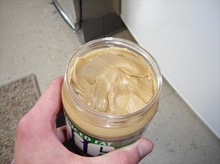 Charged in the case are Stewart Parnell, former president and chief executive officer, Michael Parnell, a food broker who worked on behalf of P.C.A., Samuel Lightsey, operations manager at P.C.A.’s plant in Blakely, Ga., from July 2008 to February 2009, and Mary Wilkerson, who worked as a receptionist, office manager and quality assurance manager at the plant.
Charged in the case are Stewart Parnell, former president and chief executive officer, Michael Parnell, a food broker who worked on behalf of P.C.A., Samuel Lightsey, operations manager at P.C.A.’s plant in Blakely, Ga., from July 2008 to February 2009, and Mary Wilkerson, who worked as a receptionist, office manager and quality assurance manager at the plant.Stewart and Michael Parnell as well as Mr. Lightsey were charged with mail and wire fraud, the introduction of adulterated and misbranded food into interstate commerce with the intent to defraud or mislead, and conspiracy. Stewart Parnell, Mr. Lightsey and Ms. Wilkerson were also charged with obstruction of justice.
The D.O.J. also said Daniel Kilgore, former operations manager at the Blakely plant from 2002 to 2008, had been charged with mail fraud, wire fraud, the introduction of adulterated and misbranded food into interstate commerce with the intent to defraud or mislead, and conspiracy. Mr. Kilgore has pleaded guilty to the charges.
“When those responsible for producing or supplying our food lie and cut corners, as alleged in the indictment, they put all of us at risk,” said Stuart F. Delery, who heads the Justice Department’s Civil Division. “The Department of Justice will not hesitate to pursue any person whose criminal conduct risks the safety of Americans who have done nothing more than eat a peanut butter and jelly sandwich.”
The indictment charges that Stewart and Michael Parnell, Mr. Lightsey and Mr. Kilgore participated in a scheme to manufacture and ship Salmonella-contaminated peanuts and peanut products, and misled P.C.A. customers. Although P.C.A. is no longer in business, the allegations against each of the defendants are related to their conduct while at P.C.A. or a related company.
“At this point, we will evaluate the charges that have been filed against Mr. Parnell and will prepare for a vigorous defense,” said the law firm Gentry Locke Rakes & Moore L.L.P., the firm defending Stewart Parnell, in a statement. “There is little doubt that as the facts in this case are revealed, it will become apparent that the F.D.A. was in regular contact with P.C.A. about its food handling policy and was well aware of its Salmonella testing protocols. Representatives of state and federal agencies made regular visits to the P.C.A. facility in Georgia over the years and months prior to the Salmonella outbreak and such agencies were aware of and made no objections to the testing policies or protocols in place.
“While Mr. Parnell and others associated with P.C.A. have to date remained silent on the circumstances surrounding the government's Salmonella investigation, as this matter progresses it will become clear that Mr. Parnell never intentionally shipped or intentionally caused to be shipped any tainted food products capable of harming P.C.A.'s customers.”
The charges allege that Stewart and Michael Parnell, Mr. Lightsey and Mr. Kilgore participated in several schemes by which they defrauded P.C.A. customers about the quality and purity of their peanut products and specifically misled P.C.A. customers about the existence of food-borne pathogens, most notably Salmonella, in the peanut products P.C.A. sold to them. The P.C.A. executives did so in several ways, for example, even when laboratory testing revealed the presence of Salmonella in peanut products from the Blakely plant, Stewart Parnell and Michael Parnell, Mr. Lightsey and Mr. Kilgore failed to notify customers of the presence of Salmonella in the products shipped to them.
In addition, Stewart and Michael Parnell, Mr. Lightsey and Mr. Kilgore are alleged to have fabricated certificates of analysis (C.O.A.s) accompanying various shipments of peanut products.
After the Salmonella outbreak that started the investigation, Food and Drug Administration inspectors visited the plant several times in January 2009. According to the indictment, the inspectors asked specific questions about the plant, its operations, and its history, and, in several instances, Stewart Parnell, Mr. Lightsey and Ms. Wilkerson gave untrue or misleading answers to the questions.
In early January 2009, the P.C.A. issued a recall for 21 lots of peanut butter it sold to institutional and food service operators. The recall widened and ended up affecting hundreds of companies ranging in size from the Kellogg Co. to small, family-owned operations.
In late January the F.D.A. announced it was opening a criminal investigation into the recall, and in mid-February 2009, the P.C.A. filed for Chapter 7 bankruptcy protection and shut down.





